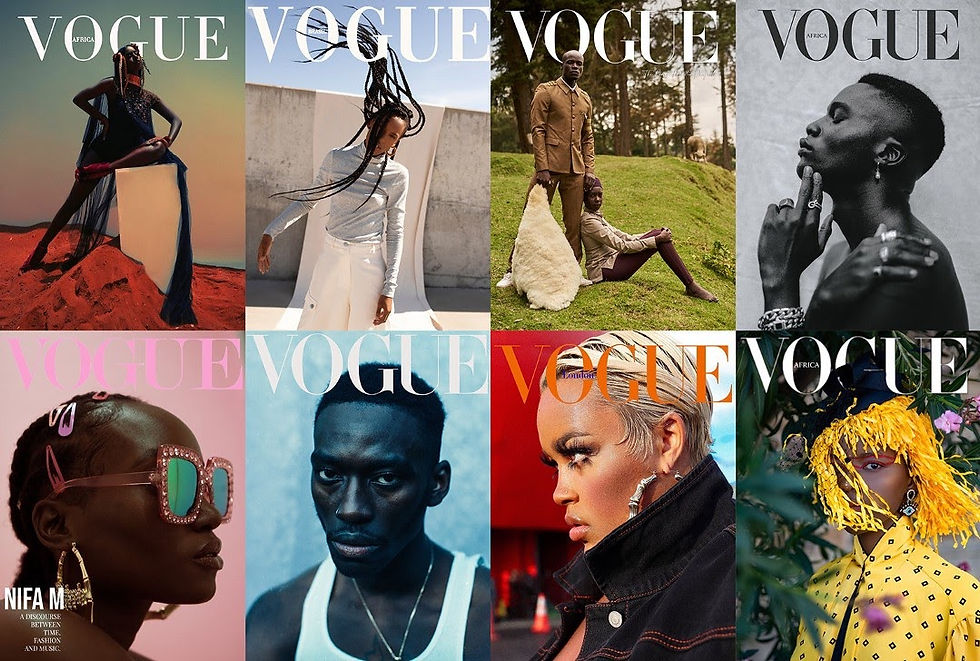The #VogueChallenge: More than just a creative flex
- VIT Today

- Jul 27, 2020
- 2 min read
By Shalini Purkayastha

The Vogue Challenge has been an eye-catcher. A bunch of Vogue covers had been popping up every time we scroll down our feeds on social media. These could feature your friend, your neighbor, or in that case anyone. These DIY front pages are a viral endeavor that most of us were invested in and the content offers a peek at rising photographers, aspiring models, and anyone willing to experiment in Photoshop. It is a creative standard, an inventive norm and people are aiming at recreating their versions, thus gaining enough popularity worldwide. While this isn’t the first time people have taken Instagram challenges upon themselves, but this is way more trending than what went down for various other aspects.
Not to anyone’s surprise, but prejudice exists in this field as well. Only a few women, ethnic minorities, and the genderqueer were given a chance, else, it was typically white males given this opportunity to be the photographer of such cover shoots. It was only two years back that Tyler Mitchell became the first African-American photographer to shoot a cover story for Vogue with the September 2018 issue starring Beyonce. The people delineated in these areas are from a very small subset of the populace. The industry is working towards challenges like this, and the crowdsourced new talents found is unquestionably a cause for celebration. We don’t lack in the number of capable people; it’s just that these artists need to be encouraged and upheld for acknowledgment on the big screen.
The Vogue Challenge was actually a tribute to the Black Lives Matter movement. The worldwide trend is not just a social media hype; it started with a notion addressing a grave issue.

Oslo-based student Salma Noor was the first to post a black and white shot of herself by photographer, Angèlique Culvin, with the Vogue logo and a headline reading, “Being Black is not a crime” as a kind of protest. “I am a Black, young Muslim woman who wanted to create something new while speaking on something very important. I chose Vogue because it’s the standard one strives to reach, and it is one of my favorite magazines.” shared Noor
Many in the industry echo with Noor’s sentiment. In this world, the blacks have had to prove their worth 50 times more in comparison to a usual candidate, and even if they are recognized, they are the only ones from the community to voice their opinion in the boardroom. Nevertheless, such barriers don’t exist online where the democratic nature of social media allows for greater communication. It is great to see that people are successfully being able to spread awareness about ubiquitous topics like this. Beautiful images are posted online every day, but the depiction of the Vogue logo adds a layer of gravity. The scope of the challenge extends far beyond what it appears to be, invoking one of the most recognizable names in fashion conveying a message.


















Comments